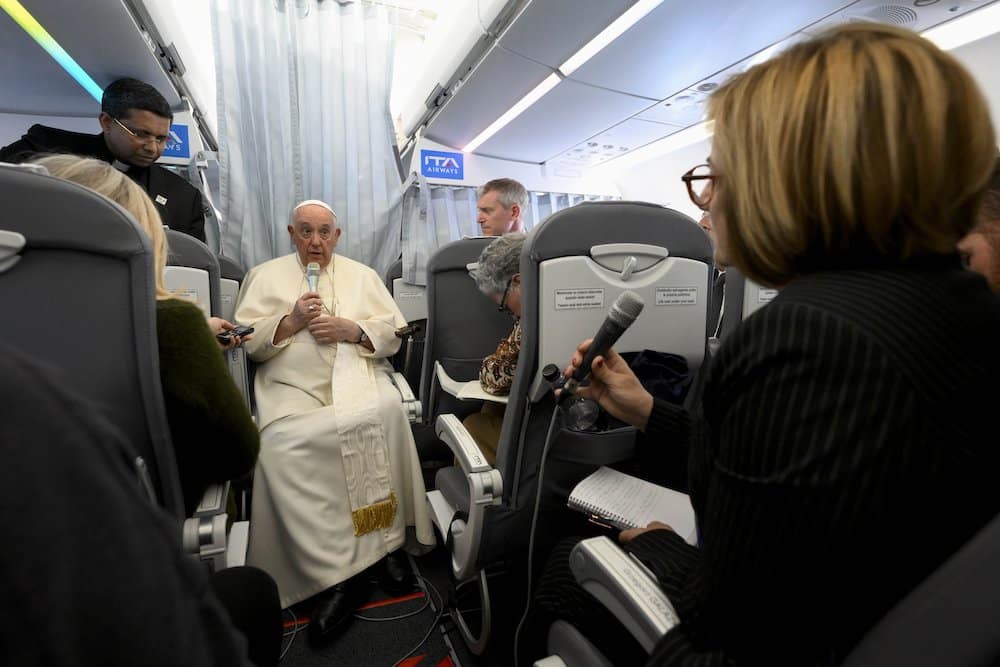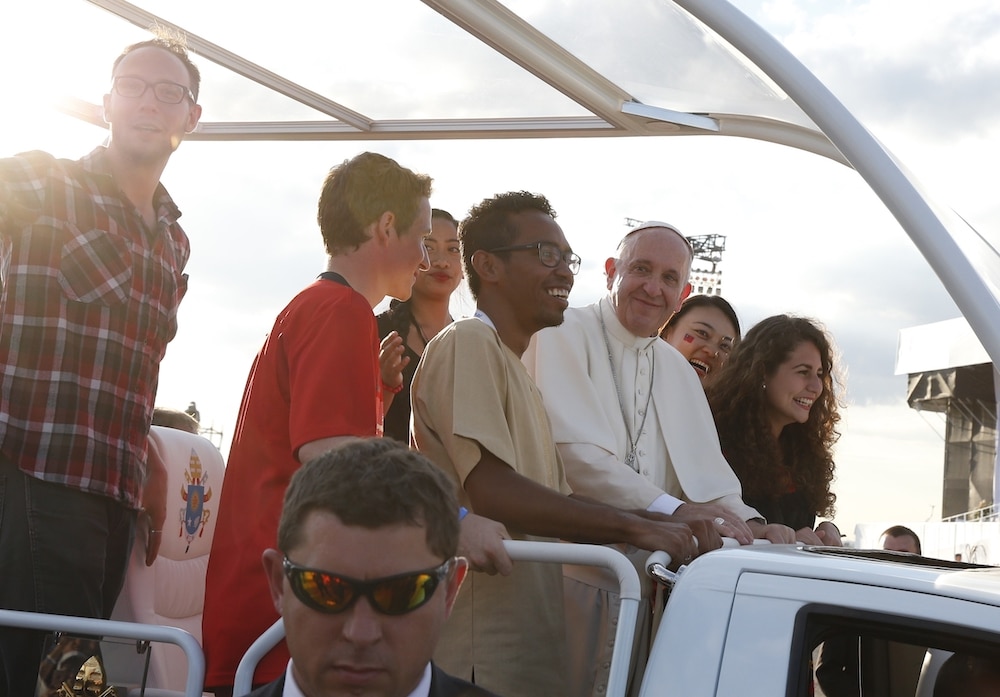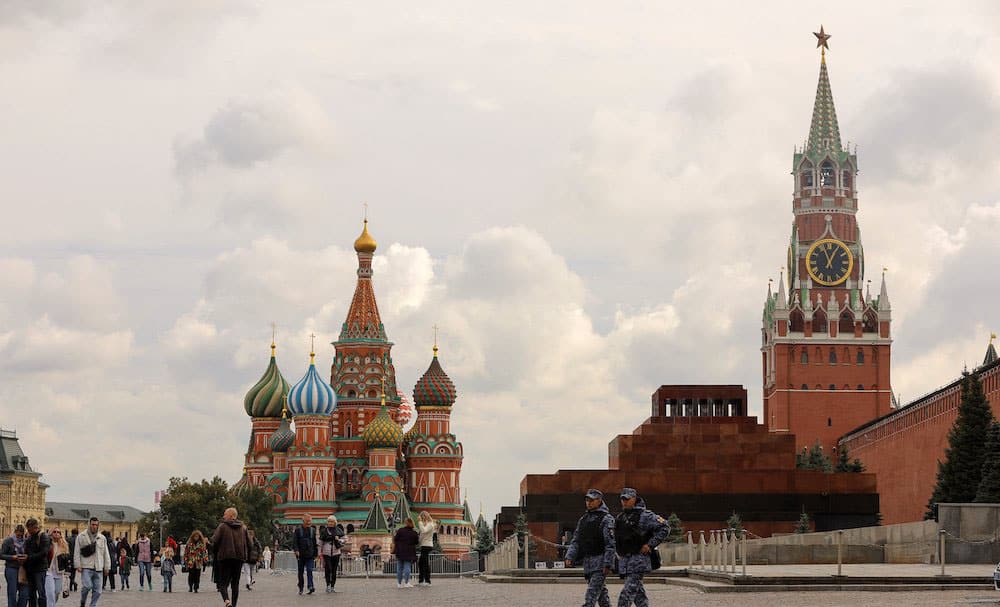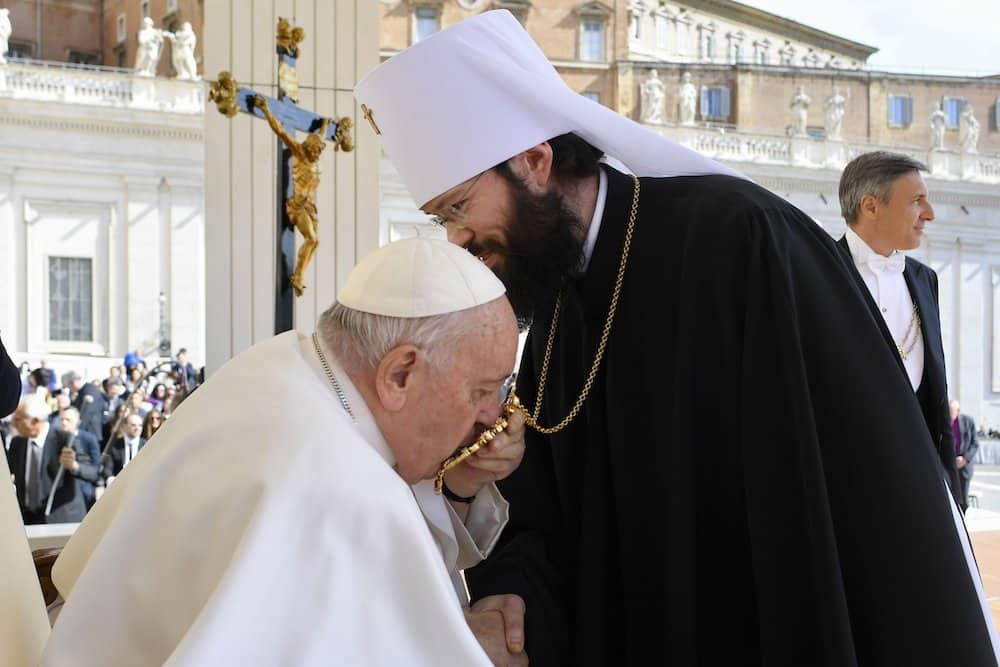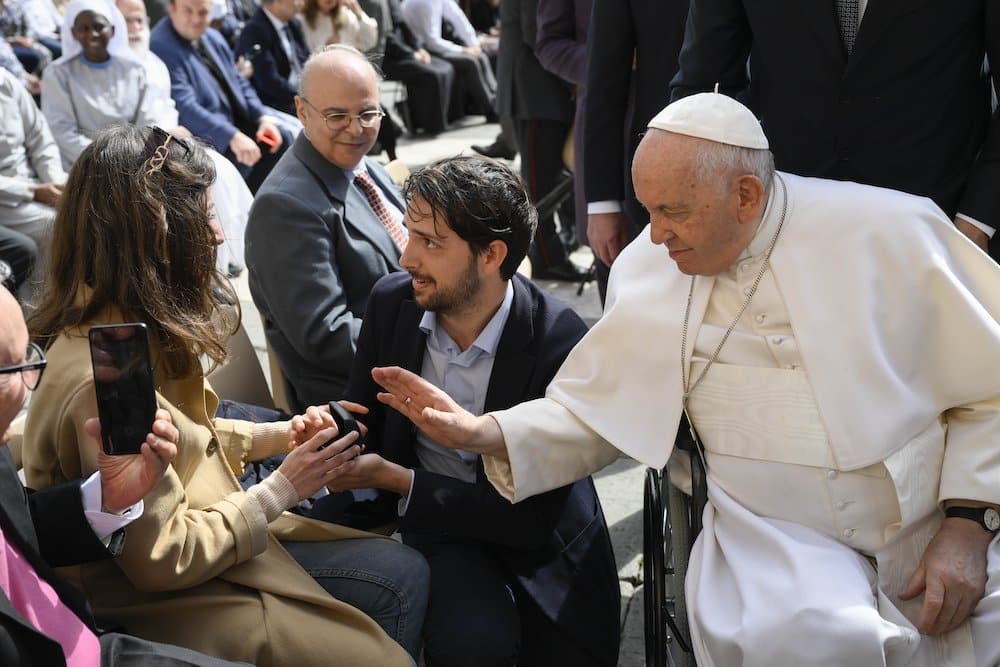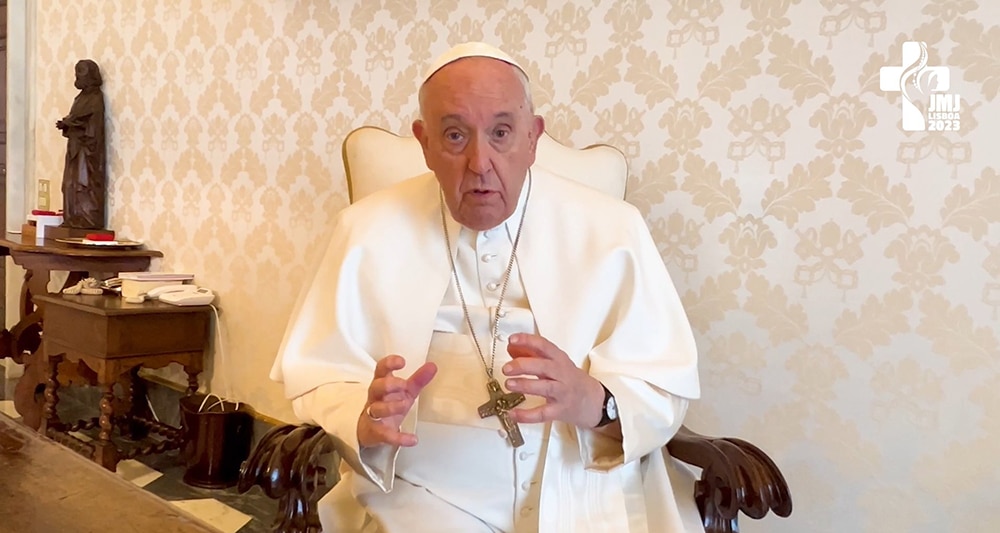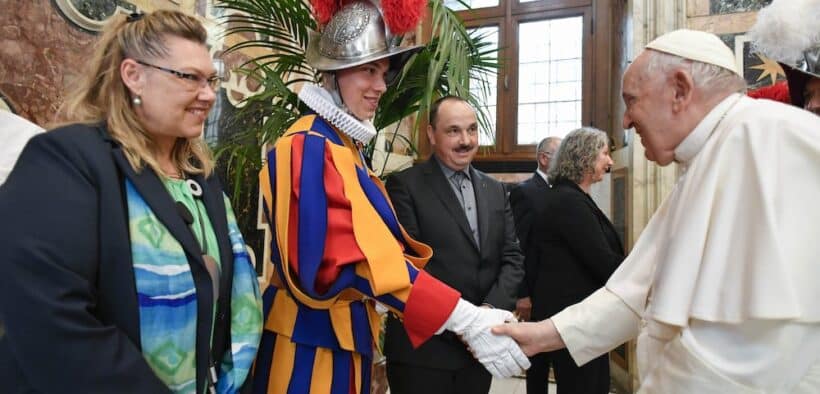ABOARD THE PAPAL FLIGHT FROM HUNGARY (CNS) — The Holy See has a project underway related to peace between Russia and Ukraine, but Pope Francis told reporters he could not talk about it yet.
“There is a mission underway that is not public yet; when it is public, I will tell you about it,” Pope Francis told reporters traveling with him from Budapest, Hungary, back to Rome April 30.
He also said discussions already were underway with Indigenous communities in Canada for the repatriation of cultural artifacts held in the Vatican Museums.
Pope Francis had been asked whether, after giving three fragments of the Parthenon marbles to the Orthodox Church of Greece in March, he was planning to do the same with artifacts that have been traced to the Inuit, Métis and First Nations communities of Canada.
“This is the Seventh Commandment: if you have stolen something, you must give it back,” he said.
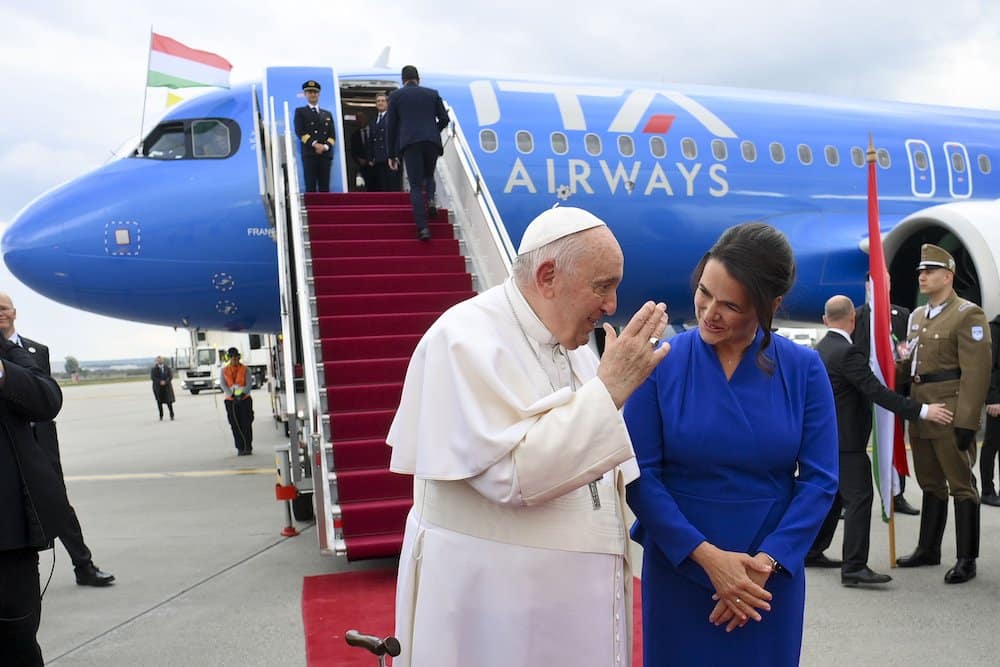
“The restitution of Indigenous articles is underway with Canada — at least we had agreed to do it,” the pope said.
What can be returned to its rightful owners should be, the pope said.
“Sometimes you can’t — (when) there isn’t a political or real, concrete possibility to do it — but to the extent that you can return something, you should. This is good for everyone, so no one gets used to putting their hands in someone else’s pocket.”
On his two-hour flight back to Rome from Budapest, Pope Francis spent about 20 minutes answering five questions from reporters traveling with him. Other topics included his health, his travel plans and his discussions in Budapest with Prime Minister Viktor Orbán and with Russia Orthodox Metropolitan Hilarion of Budapest and Hungary.
Asked if he had spoken about peace in Ukraine or sought contacts with Moscow during his meetings with Orbán, a friend of Russian President Vladimir Putin, and with Metropolitan Hilarion, the pope responded that “peace is made by opening channels. You cannot create peace with closure. I invite everyone to open doors, channels of friendship.”
As for his conversation with Metropolitan Hilarion, the pope said, “well, we weren’t talking about Little Red Riding Hood.”
“I am willing to do anything that must be done” to promote peace, he said.
Asked about his health, Pope Francis said that when he got sick in late March, he did not lose consciousness, as some media reported, but he was in such pain that he skipped lunch and went to take a nap.
“I did not lose consciousness but, yes, I had a high fever, and at 3 in the afternoon the doctor had me immediately taken to the hospital,” he said. “It was a strong case of pneumonia in the lower part of the lungs.”
He spent three nights March 29-April 1 in Rome’s Gemelli hospital. The Vatican press office had said his doctors diagnosed bronchitis.
The day before the trip to Hungary, Pope Francis said, he had seen his doctor, “who came to look at things a bit,” and they spoke about his travel plans, which include Lisbon, Portugal, in early August for World Youth Day.
“You all can see for yourselves that things are not the same as they were two years ago,” but “with the cane, I’m doing better. For now, the trip (to Lisbon) is not canceled,” the pope said. “Then there is the trip to Marseille (France), a trip to Mongolia and there’s another one that I don’t remember.”
“You see how the program keeps me moving,” he said.
During the inflight news conference, Pope Francis refused to criticize Orbán directly on migration even though the prime minister has enacted a tough “no migrants” policy and built fences along Hungary’s borders with Serbia and Croatia.
Asked about Hungary’s policy, Pope Francis insisted — as he has before — that the European Union must act. Currently he said, only five countries — Greece, Cyprus, Italy, Spain and Malta — are bearing a disproportionate burden in taking in hundreds of thousands of people fleeing poverty and civil strife.
After Ukrainian Prime Minister Denys Shmyhal met Pope Francis at the Vatican April 27, the prime minister told reporters he had asked for the Vatican’s help in returning to Ukraine children taken by force to Russia.
The Ukrainian government’s “Children of War” website claimed, as of April 30, that 19,393 children had been forcibly removed from Ukraine and taken to Russia.
Asked on the plane if he thought the Vatican could help, Pope Francis responded, “I think so because the Holy See has been a go-between in some of the prisoner exchanges” between Russia and Ukraine.
“The Holy See is willing to try because it’s the right thing and we have to help,” the pope said. He explained it’s not about helping with the war effort, but with a humanitarian cause.
“All humanitarian gestures help,” he said. “Gestures of cruelty do not.”

